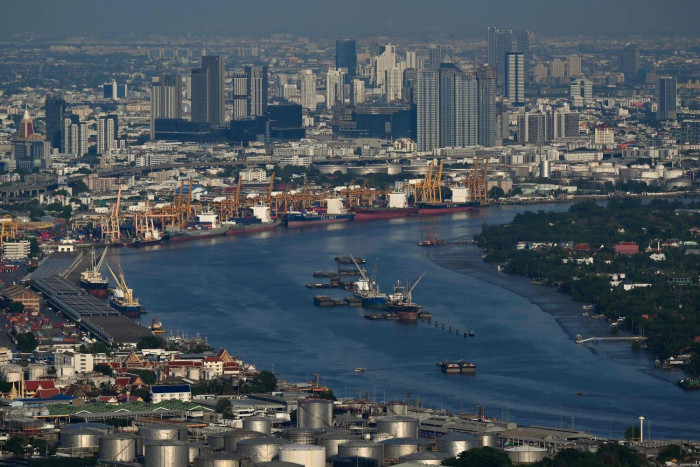
Thailand stands a chance on a deal
An international affairs academic and a leading economist are partially optimistic Thailand can reach an agreement with Washington over the latter's stiff reciprocal tariffs, though challenges remain as the levies have already affected the global trading system.
The US-China trade war is a "geoeconomic" conflict, pertaining to not only trade, but also technology and other non-military facets, said Thitinan Pongsudhirak, senior fellow of the Institute of Security and International Studies at Chulalongkorn University's Faculty of Political Science.
"The recent agreement between the US and China to ease mutual tariffs is just one phase. There will be ups and downs, but overall the conflict is likely to intensify," he told the Bangkok Post.
Mr Thitinan said the initial US-China deal was reached because President Donald Trump is mindful of the tariff effects on American consumers who form the base of Republican Party politicians.
"But as these tariffs are priced in and American consumers become accustomed to them, the tariff storm will pick up again. Remember, this is not only the US and China -- the US has hiked tariffs against the entire global trading system," he said.
Mr Thitinan said Thailand should be able to reach a deal with the US over reciprocal tariffs, but there are many challenges.
"Thailand is already behind Vietnam, Indonesia, Malaysia, and even the Philippines and Cambodia. In Washington, Thailand is not viewed favourably because of its deportation of the Uyghurs and the arrest of American academic Paul Chambers," he said.
The US State Department announced sanctions against several Thai officials for their role in deporting 40 Uyghurs back to China on Feb 27, which drew widespread international condemnation.
Last month, the US embassy in Bangkok stated it was "alarmed" and was "closely monitoring" the arrest of Thailand-based American scholar Mr Chambers, who was charged with lese majeste and computer crimes.
Meanwhile, between Trump's two terms, the Thai trade surplus with the US has more than doubled, in part because of transshipments from China, said Mr Thitinan.
"I think it is alarming Thai leaders complacently think Thailand stands in good stead. Thailand is actually in big trouble if it cannot negotiate down the US tariffs to a similar level as our regional peers," he said.
Thai trade negotiators should address the US$45.6 billion trade imbalance and the Chinese transshipments, said Mr Thitinan.
"These are the two top priorities that will matter in Washington," he said.
"Thailand can also make a grand gesture to reaffirm the bilateral alliance by switching from Gripens to F-16s jets for arms procurement, which may garner attention in Washington."
Amonthep Chawla, chief economist at CIMB Thai Bank's Economic Centre, said a pause in the US-China trade war and a more accommodating US approach brighten the prospects for international trade.
"As a result of the China-US trade deal in Geneva, global trade is not completely paralysed, though it is not growing much," he said.
Thailand remains capable of clinching a deal with Washington by lowering its trade surplus with the US from $40 billion, said Mr Amonthep.
"Thailand exports about $60 billion to the US and imports $20 billion," he said.
"For products such as meat and soybeans, we are net importers, so Thailand should import more from the US and reduce purchases from other countries."
Source: Bangkok Post
Share: